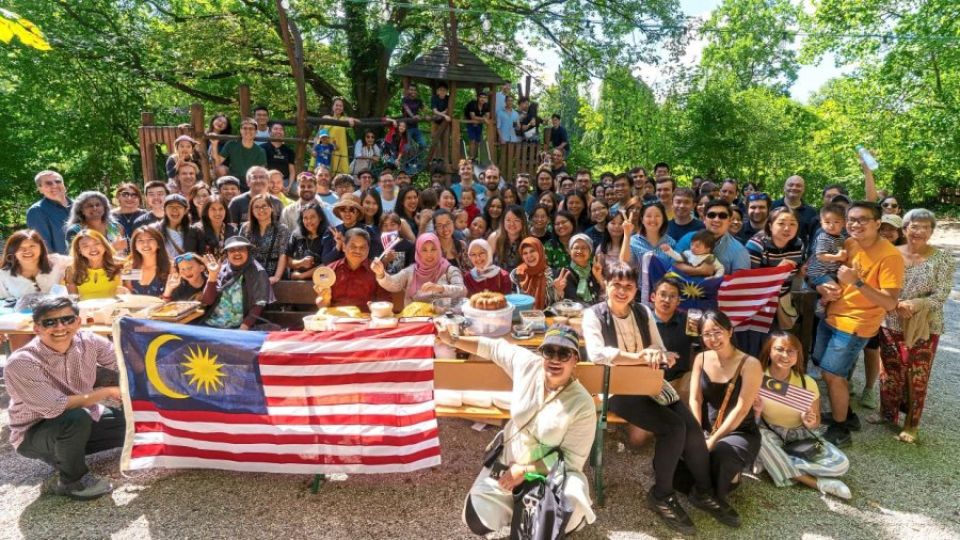January 29, 2024
PETALING JAYA – One frosty morning in November, scores of Germans and Malaysians gathered to drink teh tarik as fresh snow blanketed Hamburg, in northern Germany.
Over plates of roti canai and nasi lemak, senior officials from the Malaysian Embassy in Berlin put aside the rigid protocols of the diplomatic corps to mingle, joke and gossip with ordinary Malaysians and Germans, as part of the Foreign Affairs Ministry’s intensified public diplomacy initiative.
“A number of senior gentlemen in Hamburg exclaimed that it was the first time a Malaysian ambassador came down to meet them,’ said Malaysian ambassador to Germany Datin Paduka Dr Adina Kamarudin.
ALSO READ: Soft power wins hearts and minds
“It was memorable to have a gathering of people, who love Malaysia, who miss the country, eating the iconic Malaysian dishes, sipping teh tarik and savouring the spirit of togetherness,” Adina told The Star.
The Malaysian mission in Germany held several of these gatherings in the summer and fall last year in Munich, Berlin and Hamburg where overseas Malaysians and Germans were treated to “Malaysian breakfast culture”.
Last year, more than 25 Malaysian missions overseas held similar events to build more people-to-people ties between Malaysia and the citizens of these host countries, said Datuk Yubazlan Yusof, who heads the Wisma Putra’s communications and public diplomacy division.
It was not just Malaysian breakfast culture that was on offer. The Malaysian High Commission in Brunei’s capital organised a sold-out laksa festival which featured Sarawak, Johor, Penang and Kelantan varieties of the Malaysian fish noodle stew.
In Belgrade, Serbia, the Malaysian mission opened its doors to host a “tea-time in Kuala Lumpur” where guests enjoyed traditional Malaysian snacks and beverages while being serenaded with Serbian and Malaysian songs.
Locals in Stockholm got to take part in batik-making during the Merdeka bazaar organised by the Malaysian mission to Sweden.
In Tokyo, Japanese and Malaysian participants took part in a Malaysia-Japan sports competition that was part of the larger Malaysian food fair in Shinjuku Chuo Park.
The Laksa Festival in Bandar Seri Begawan received overwhelming response from the public, and the hotel which co-organised it had to put out extra tables and chairs to accommodate the unexpected turnout, said Malaysian High Commissioner to Brunei Raja Datuk Reza Raja Zaib Shah.
“From this programme, I believe it really shows how food can become a powerful tool and medium for cultural diplomacy and shape the visibility of a country,” Raja Reza told The Star.
The year before, the High Commission started an inter-varsity pantun competition to promote the art form in Brunei, said Raja Reza.
Yubazlan of Wisma Putra said these programmes are also meant to strengthen ties with Malaysians living abroad.
“We want to build relations with Malaysians living abroad as they are very accomplished. We want them to help us build relations with foreign nationals and create trade and social networks in these countries.”
Adina of the Malaysian mission in Germany echoed this sentiment.
“We want to create the spirit of friendship and camaraderie between Malaysians abroad and the embassy. Many who are living in Germany sometimes only get to meet other Malaysians at such occasions organised by the embassy,” she said.
The Malaysian breakfast spread of teh tarik, nasi lemak and roti canai “tugged at the hearts” of the Malaysians who came for the event as the iconic dishes reminded them of home, the embassy said, adding that in Munich, about 170 Malaysians and their families showed up.
Similarly in Melbourne, business people, students and families donned traditional Malaysian outfits to sing the Negaraku and feast on roti canai and nasi lemak with the staff of Malaysia’s consulate-general on National Day.
The programme was a huge success judging from the turnout, said Malaysia’s consul-general in Melbourne Nik Muhammad Nasyron Syah Nik Daud.
“Attendees enjoyed an exquisite array of Malaysia’s most loved foods such as nasi lemak, roti canai, pulut kuning, rendang, roti jala and satay, downed with teh tarik, while being dressed in traditional attire,” Nik Muhammad Nasyron Syah said.
“The atmosphere was vibrant with joy, and demonstrated the spirit of unity and togetherness that has long existed among Malaysians no matter where they are.”

